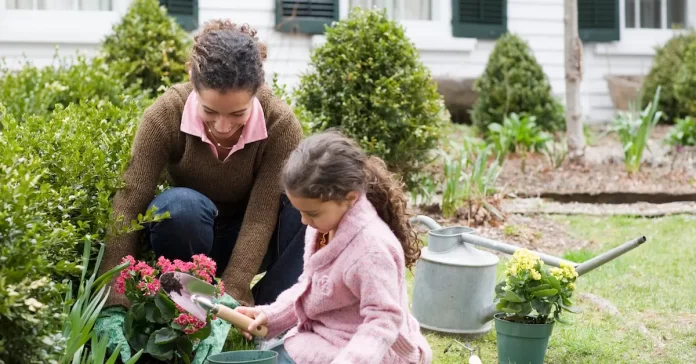As more and more people become aware of the importance of preserving nature and our planet’s resources, the trend towards sustainable living is gaining momentum. One of the best ways to contribute to a greener environment is by connecting with nature, learning to appreciate it, and embracing it daily. Gardening is an excellent activity that can help us achieve the above. In this article, Vikki Gerrard La Crosse explores the joys of gardening and its environmental benefits.
Table of Contents
Promotes Mental And Physical Well-Being
Gardening is an excellent way to stay physically active and benefits our well-being. Research shows that engaging in gardening activities not only helps reduce stress but also contributes to improved mental health. By connecting with nature and taking a break from the busy digital world, we can find solace and tranquility in nurturing plants. Observing their growth and ultimately reaping the fruits of our labor can be an incredibly rewarding and therapeutic experience. Moreover, gardening allows us to develop a sense of mindfulness as we immerse ourselves in the present moment, fully embracing the sights, sounds, and scents of our natural surroundings.
Encourages Healthy Eating Habits
Growing vegetables and fruits is an excellent way to ensure your food is fresh, nutritious, and organic. Studies show that people who grow their food tend to eat healthier diets with more fruits and vegetables, which can help reduce the risk of chronic diseases such as obesity, diabetes, and heart disease.
Helps Preserve Biodiversity
Gardening is a wonderful way to promote and enhance biodiversity within our environment. By creating habitats for wildlife, such as providing nesting sites and food sources, we can encourage the presence of diverse species. Additionally, gardening can attract and support essential pollinators like bees and butterflies, aiding in the reproduction of plants and the overall health of ecosystems. Choosing native plants for your garden helps preserve the local ecosystem and ensures that the plants are well-adapted to the region’s climate and soil conditions. Doing so provides a sustainable food and shelter source for beneficial insects and animals, creating a thriving and balanced ecosystem in your backyard.
Reduces Carbon Footprint
Growing your food can reduce your carbon footprint by eliminating transportation and packaging. Also, gardening helps sequester carbon dioxide, a greenhouse gas that contributes to climate change, from the atmosphere. Plants absorb carbon dioxide during photosynthesis, which helps mitigate climate change and reduce air pollution.
Increases Community Involvement
Gardening can be a great way to connect with neighbors and fellow gardeners. Community gardens have become increasingly popular, and they not only improve local food systems but also help strengthen social connections. Community gardens allow people to unite, share knowledge, and build camaraderie.
Enhancing Air Quality
Gardens significantly improve the air quality in our surroundings by purifying pollutants from the air. Plants absorb pollutants such as carbon monoxide, sulfur dioxide, and nitrogen oxide and convert them into oxygen through photosynthesis. A simple garden has enormous potential to improve air quality and create a healthier environment.
Cost-Effective
Growing your garden is an excellent way to save money on produce bills since vegetables and fruits from your garden come at little to no cost compared to store-bought produce.
Increasing Property Value
Well-maintained gardens have numerous benefits beyond aesthetics, says Vikki Gerrard La Crosse. In addition to enhancing the look of your home, a beautifully landscaped garden creates a harmonious and tranquil environment, attracting birds and butterflies while providing a serene space for relaxation. Moreover, a thoughtfully designed garden can reduce noise pollution and even contribute to water conservation. A well-tended garden becomes a true sanctuary that adds charm and value to your home by adding visual appeal, curb appeal, and overall value to the property.
Reduced Pesticide Use
Growing your food reduces the consumption of store-bought produce, which could contain harmful pesticides, and allows for a more sustainable and eco-friendly approach to gardening. By embracing natural gardening methods, such as attracting beneficial insects and birds to control pests, we can create a harmonious ecosystem that minimizes the need for harmful chemicals and fosters a healthier environment for ourselves and nature.
Soil Conservation
Growing your garden is a delightful hobby and a beneficial practice that contributes to soil health. By reducing erosion and promoting soil fertility through nutrient cycling, gardening plays a vital role in maintaining the long-term sustainability of our soils. Additionally, it is worth noting that gardens can potentially minimize water runoff, preventing soil depletion and conserving this precious resource.
Conclusion
Gardening is a fulfilling activity with many personal and environmental benefits. From promoting physical and mental well-being to reducing carbon footprint and preserving biodiversity, gardening is a fun and practical way to live a greener lifestyle. Whether you have a small balcony or a spacious backyard, Vikki Gerrard La Crosse WI, says there is always a way to grow something and connect with nature.








